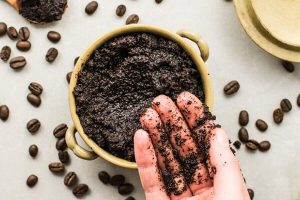Can You Dispose of Coffee Grounds Down the Sink? - Key Considerations
Can You Dispose of Coffee Grounds Down the Sink? - Key Considerations
Blog Article
We have found this great article pertaining to Can You Put Coffee Grounds in the Sink Garbage Disposal? down the page on the net and concluded it made perfect sense to discuss it with you over here.

If you're a devoted coffee enthusiast, you may be wondering about the most effective method to deal with your coffee premises. While it may appear practical to clean them down the sink, this practice can bring about a number of concerns for both your plumbing and the environment. In this post, we'll explore whether it's risk-free to place coffee grounds down the sink and talk about different disposal approaches to take into consideration.
Threats of Putting Coffee Grounds Down the Sink
Plumbing Issues
Among the key interest in taking care of coffee grounds down the sink is the danger of clogging your pipelines. Coffee premises don't dissolve in water and can build up in time, creating a thick sludge that can obstruct drains and lead to costly plumbing repair work.
Environmental Impact
Beyond the potential damages to your plumbing, placing coffee premises down the sink can likewise harm the environment. When cleaned into the sewage system, coffee premises can add to blockages in sewage system lines and therapy facilities. In addition, the high focus of organic matter in coffee premises can deplete oxygen degrees in waterways, adversely affecting aquatic life.
Alternatives to Disposing of Coffee Grounds
Composting
One green choice for getting rid of coffee premises is to compost them. Coffee grounds are abundant in nitrogen, making them an excellent addition to compost heap or bins. As they break down, they include nutrients to the dirt, improving its fertility and structure.
Garbage Disposal
If you do not have a composting setup, another choice is to just toss your coffee premises in the garbage. Make certain to secure them in a compostable bag or container to prevent odors and leakage. While this technique doesn't supply the very same ecological benefits as composting, it's a risk-free and hassle-free method to dispose of coffee premises.
Tips for Proper Disposal
Make Use Of a Sink Strainer
To prevent coffee premises from entering your sink's drainpipe in the first place, think about using a sink filter. These cost-effective tools catch solid particles, consisting of coffee grounds, preventing them from creating blockages.
Regular Maintenance
No matter exactly how you pick to throw away your coffee grounds, it's essential to preserve your plumbing frequently. Set up regular drainpipe cleanings to eliminate any kind of buildup and make sure that your pipelines remain clear and free-flowing.
Final thought
While it might be tempting to wash coffee grounds down the sink for ease, doing so can have serious consequences for your plumbing and the atmosphere. Rather, take into consideration composting your coffee premises or getting rid of them in the garbage. By embracing liable disposal techniques, you can appreciate your coffee guilt-free while lessening your eco-friendly impact.
Coffee Grounds Down The Drain: Are They OK?
Can Coffee Grounds Go Down the Sink?
You may be thinking, “But I pour them down the sink drain every day and I’ve never had a clogged drain!” You see, coffee grounds come from coffee beans, which are virtually rock hard by the time they’re ground and brewed. You certainly wouldn’t want to grind up the pit from a peach, apricot, or nectarine that is about just as hard because they wouldn’t break down like other foods, and it’s the same with coffee beans!
If you usually grind coffee beans in the garbage disposal because it seems the cleanest and convenient, we don’t fault you for that. And anyone who has ever had to clean up the trash with spilled coffee grounds after a dog got into it would understand the rationale. Unfortunately, coffee grounds do not break down in water, so instead of grinding up and washing away as normal foods do in a garbage disposal, they clump together and as time goes by, the grounds can form a clump and pack the drain until it develops a clog.
What to Do With Coffee Grounds
So, what do you do with coffee grounds if you can't put them down the drain? You could of course just throw them in the garbage, but we encourage you to give these practical uses for them a try!
Since coffee grounds contain key minerals for plant growth, you can use them to fertilize your garden. Coffee grounds not only fertilize gardens because they are mineral-rich, but they are also great at absorbing contaminants in the soil, particularly heavy metals. Coffee grounds are said to attract worms, which help gardens flourish. You can use coffee grounds as fertilizer by sprinkling them around your plants. You can compost your coffee grounds and use them at a later time. Coffee grounds are great insect repellents when you place them in bowls or sprinkle them around the areas you want to repel insects. To remove fleas from your dog or cat, simply shampoo your pet then rub coffee grounds throughout their fur. Rinse them off and dry as usual. Like baking soda, used coffee grounds can eliminate odors. You can place them in a bowl in the fridge and let them do the work! Mix coffee grounds with coconut oil for a wonderful face or body scrub, or to reduce the appearance of cellulite. https://www.wintershomeservices.com/blog/2019/august/coffee-grounds-down-the-drain-are-they-ok-/

I recently found that blog entry on Can You Put Coffee Grounds in the Sink Garbage Disposal? while perusing the internet. Sharing is nice. One never knows, you may be doing someone a favor. We recognize the value of reading our article about Should You Put Coffee Grounds Down the Sink?.
Check Us Out Report this page